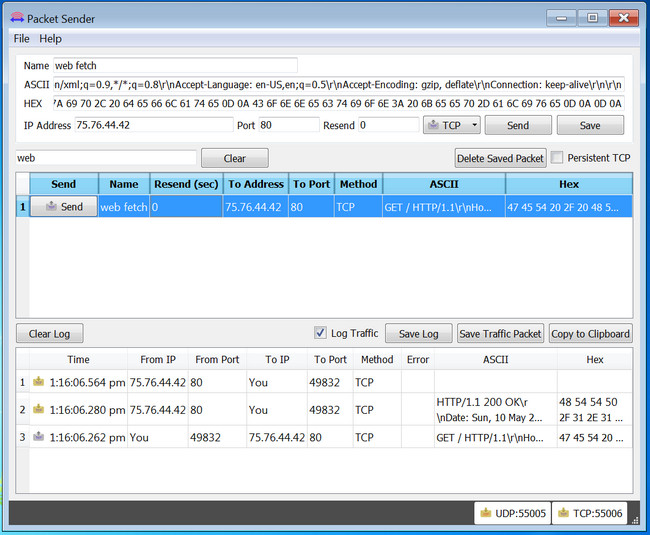


Return packet > character.age > character.name > character.weight īoth operators return a reference to the packet: This allows chaining insertion and extraction of data. Sf::Packet& operator >(sf::Packet& packet, Character& character) You can make a type "compatible" with sf::Packet by providing an overload of the > operators. Packets have overloads of their operators for all the primitive types and the most common standard types, but what about your own classes? As with standard streams, Note that this applies to TCP only, UDP is fine since the protocol itself preserves You can't send an SFML packet to a non-SFML packet recipient, it has to use an SFML packet for receiving too. Some extra bytes along with your data, which implies that you can only receive them with a sf::Packet if you want them to be properly decoded. However, it has a slight drawback: To preserve message boundaries, sf::Packet has to send Packets solve the "message boundaries" problem, which means that when you send a packet on a TCP socket, you receive the exact same packet on the other end, it cannotĬontain less bytes, or bytes from the next packet that you send. UdpSocket.receive(packet, senderAddress, senderPort) nd(packet, recipientAddress, recipientPort) Sending and receiving packets is as easy as sending/receiving an array of bytes: sockets have an overload of send and receive that directly error, failed to read 'x' from the packet To check the error flag of a packet, you can test it like a boolean (the same way you do with standard streams): If a reading operation fails, the packet error flag is set. Unlike writing, reading from a packet can fail if you try to extract more bytes than the packet contains. Packets have a programming interface similar to standard streams: you can insert data with the > operator. As a bonus, it providesĪ much nicer interface than plain old byte arrays. The two other problems (endianness and message boundaries) are solved by using a specific class to pack your data: sf::Packet.
#PACKET SENDER TUTRIAL 64 BITS#
(at least on platforms where SFML runs), float and double types always have the same size, 32 bits and 64 bits respectively. Floating-point types should normally have their fixed-size equivalent too, but in practice this is not needed SFML only provides fixed-size integer types. So they can (and must!) be used safely when you want to exchange data between two computers. These types are just typedefs to primitive types, but they are mapped to the type which has the expected size according SFML provides fixed-size types for data exchange: Since primitive types cannot be exchanged reliably on a network, the solution is simple: don't use them. You may of course face other problems with network programming, but these are the lowest-level ones, that almost everybody will have to solve. Otherwise bad things might happen, like reading incomplete variables, or ignoring useful bytes. Properly reconstruct incoming messages before interpreting them.

Because it doesn't preserve message boundaries, and can split or combine chunks of data, receivers must The third problem is specific to how the TCP protocol works. For example, the long int type can be a 32-bit type on some platforms, and a 64-bit type on others. There can be differences between processors - and there are. The C++ standard doesn't set the size of primitive types (char, short, int, long, float, double), so, again, The second problem is the size of primitive types. "42" in big endian notation is 00000000 00101010, but if you send this to a little endian machine, it will be interpreted as "10752". The problem is obvious: If you send a variable between two computers whose endianness doesn't match, they won't see the same value. There are other, more exotic byte orders, but you'll probably never have to deal with them. There are two main families: "big endian" processors, which store the most significant byte first, and "little endian" processors, which store the least significant byteįirst. The endianness is the order in which a particular processor interprets the bytes of primitive types that occupy more than a single byte

Several problemsĪrise if you want to exchange data reliably between these different machines. The reason is that different machines, with different operating systems and processors, can be involved. Using and extending packets Problems that need to be solvedĮxchanging data on a network is more tricky than it seems.


 0 kommentar(er)
0 kommentar(er)
